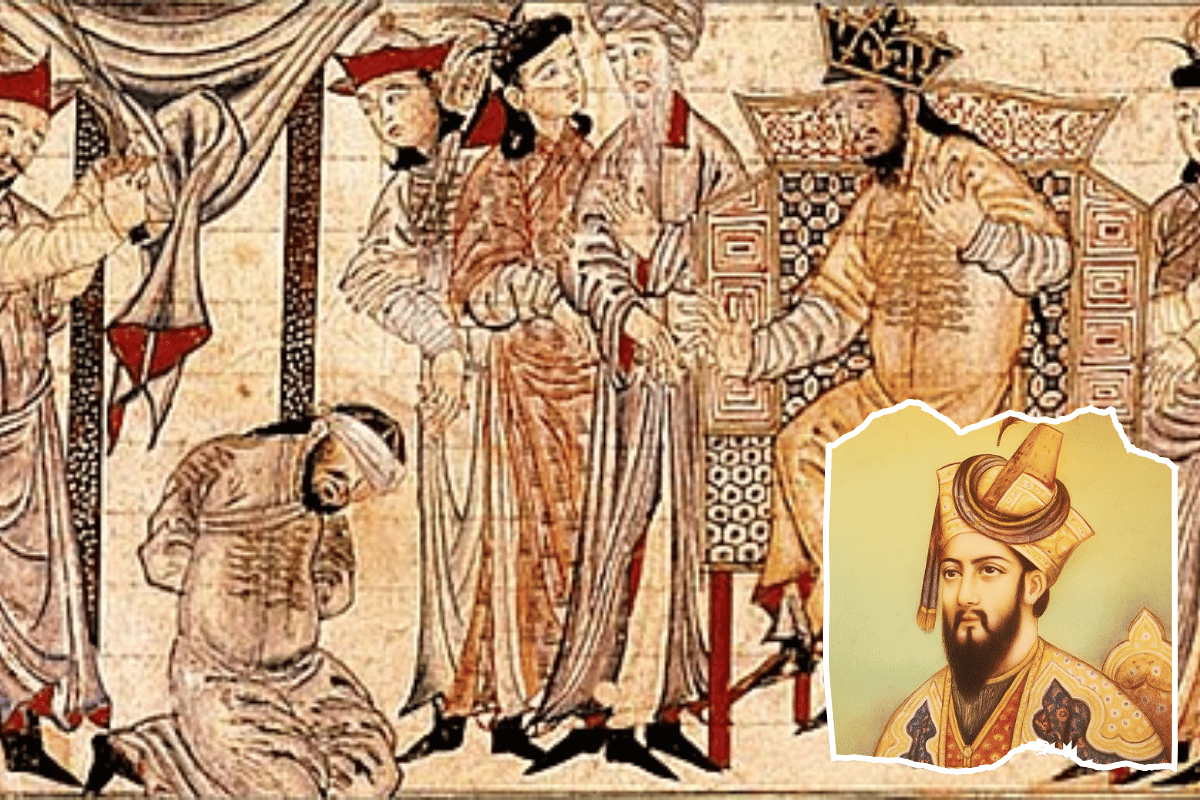
Recent articles, including those published by the BBC and Hope Not Hate, have raised concerns about the supposed threat of Hindu nationalism or “extremism” in the United Kingdom. These pieces, notably the BBC’s coverage of the 2022 Leicester unrest and Hope Not Hate’s report on Hindu nationalism, suggest that Hindu extremist ideologies pose a growing danger to community cohesion. However, a critical examination reveals that these claims lack robust empirical evidence and rely heavily on speculative narratives, often intertwined with misinformation.

This rebuttal argues that the threat of Hindu nationalism in the UK is overstated, unsupported by data, and risks unfairly stigmatising British Hindu communities.
References to questionable sources:
- https://www.bbc.co.uk/news/uk-62982239
- https://hopenothate.org.uk/in-search-of-hope/hindu-nationalism
Lack of Empirical Evidence
The BBC article references the 2022 Leicester clashes between British Hindus and Muslims following an India-Pakistan cricket match, framing them as evidence of Hindu nationalist extremism. Similarly, Hope Not Hate’s report cites these events and broader geopolitical tensions to assert that this ideology is gaining traction in the UK. However, both fail to provide concrete data—such as membership numbers of so-called extremist groups, documented acts of violence explicitly linked to Hindus, or widespread adoption of supremacist ideologies among British Hindus, to substantiate their claims.
The Leicester unrest, while unfortunate, was a complex event involving multiple factors, including social media misinformation, local gang dynamics, and economic tensions. Police investigations, as reported by Leicestershire Police, found no evidence of organised Hindu extremist groups orchestrating the violence. Instead, the clashes were largely spontaneous, fueled by misinformation on platforms like X, where false narratives about targeted attacks on religious sites escalated tensions. Attributing these events to Hindu nationalism oversimplifies the issue and ignores the absence of data linking the unrest to a coordinated ideological movement.
Misrepresentation of the Hindu Identity
Hindutva, often translated as “Hindu-ness”, is a broad cultural and philosophical concept that encompasses pride in Hindu heritage and values. While certain fringe groups in India may advocate for ethno-religious supremacy, equating Hindus with extremism in the UK context is misleading. British Hindus, numbering around 1.5% of the population (approximately 1 million people per the 2021 UK Census), are overwhelmingly integrated, law-abiding citizens who contribute to society through education, business, and civic engagement. Studies, such as those by the Pew Research Center, show that Hindus in the UK exhibit high levels of social cohesion, with low rates of religiously motivated crime compared to other groups.
Hope Not Hate’s report suggests that Hindu nationalist organisations are infiltrating British Hindu communities, yet it provides no verifiable metrics—such as membership growth, funding sources, or specific activities—to support this. Instead, it relies on anecdotal accounts and conflates cultural pride with extremism. For example, community events like Diwali celebrations or temple openings, often cited as spaces for nationalist rhetoric, are typically inclusive, attended by diverse faith groups, and focused on spiritual or charitable goals. The BBC’s own reporting on recent Hindu temple openings in Milton Keynes and Stoke-on-Trent highlights their role as community hubs open to all, undermining the narrative of exclusivity or extremism.
Misinformation and Selective Framing
Both articles draw on a leaked UK Home Office report and a National Police Chiefs’ Council (NPCC) document that lists Hindu nationalism as an emerging threat. However, these reports, as noted in posts on X, are contested for their lack of transparency and reliance on unverified intelligence. The NPCC report, for instance, does not quantify the scale of the alleged threat or provide case studies of Hindu extremist activities. Its inclusion of Hindu nationalism alongside more established threats like Islamist extremism appears speculative, especially given the absence of arrests, prosecutions, or terror-related incidents tied to Hindus in the UK.
Moreover, the framing of these articles risks amplifying misinformation. The BBC’s coverage of Leicester repeatedly emphasises Hindu-Muslim tensions without equally highlighting instances of interfaith harmony, such as joint Hindu-Muslim community initiatives in the aftermath of the unrest. Hope Not Hate’s report similarly cherry-picks incidents, like the Leicester clashes, while ignoring broader data showing that British Hindus are among the least likely to engage in religiously motivated violence. A 2023 report by the UK’s Community Security Trust and Tell MAMA, which monitors hate crimes, recorded no significant uptick in Hindu-perpetrated hate incidents compared to other groups.
Sunny Hundal’s Lack of Reliability as a Source
A key figure amplifying the narrative of Hindu nationalism in the UK is Sunny Hundal, a journalist cited in both the BBC and Hope Not Hate pieces. Hundal’s credibility is questionable due to a history of publishing unverified claims and facing legal repercussions for inaccurate reporting. In 2013, The Spectator reported that Hundal had to pay damages and issue a public apology for libelling a commentator on his blog, Liberal Conspiracy, highlighting his tendency for selective quotation and misrepresentation. His coverage of the Leicester unrest, including a tweet claiming “extremist Hindutva groups go on the rampage,” was widely criticised as inflammatory and unsubstantiated, potentially inciting further tension. Critics have accused Hundal of pushing divisive narratives, such as framing Indian government policies as fostering Hindu-Sikh divides, without evidence. His focus on sensationalism over data-driven analysis undermines his reliability, casting doubt on the credibility of claims about Hindu extremism that rely on his commentary.
Further, using a single journalist’s opinion to drive any kind of policy or conclusion on the matter would be highly premature.
Stigmatisation of a Minority Community
By amplifying unverified claims, these articles risk unfairly targeting British Hindus, a minority already vulnerable to stereotyping. The narrative of Hindu extremism can fuel distrust and alienation, undermining efforts to foster community cohesion. For instance, the labelling of Hindu cultural organisations as potential fronts for extremism, as implied by Hope Not Hate, lacks evidence and casts a wide net over legitimate community groups like the Hindu Cultural Society or Chinmaya Mission, which focus on charity and education.
The Guardian’s 2025 article on British Hindus leading environmental activism highlights their positive contributions, with 50% of Hindus prioritising climate action, higher than other faith groups. Such data contrasts sharply with the extremist label and suggests that British Hindus are more focused on constructive societal contributions than divisive ideologies. The absence of similar positive framing in the BBC and Hope Not Hate pieces reveals a selective narrative that prioritises alarmism over balance.
Conclusion
The alleged threat of Hindu nationalism in the UK, as presented by the BBC and Hope Not Hate, is not supported by credible data and relies on opinion-driven narratives tainted by misinformation. The Leicester unrest, while a serious incident, does not indicate a broader trend of Hindu extremism, and conflating cultural pride with supremacist ideology misrepresents British Hindu identity. Without evidence of organised extremist activity, membership growth, or violent incidents tied to the Hindu community, these claims remain speculative and risk stigmatising a vibrant, integrated community. Policymakers and media should prioritise evidence-based reporting and foster dialogue to address intercommunity tensions, rather than perpetuating unsubstantiated fears.









